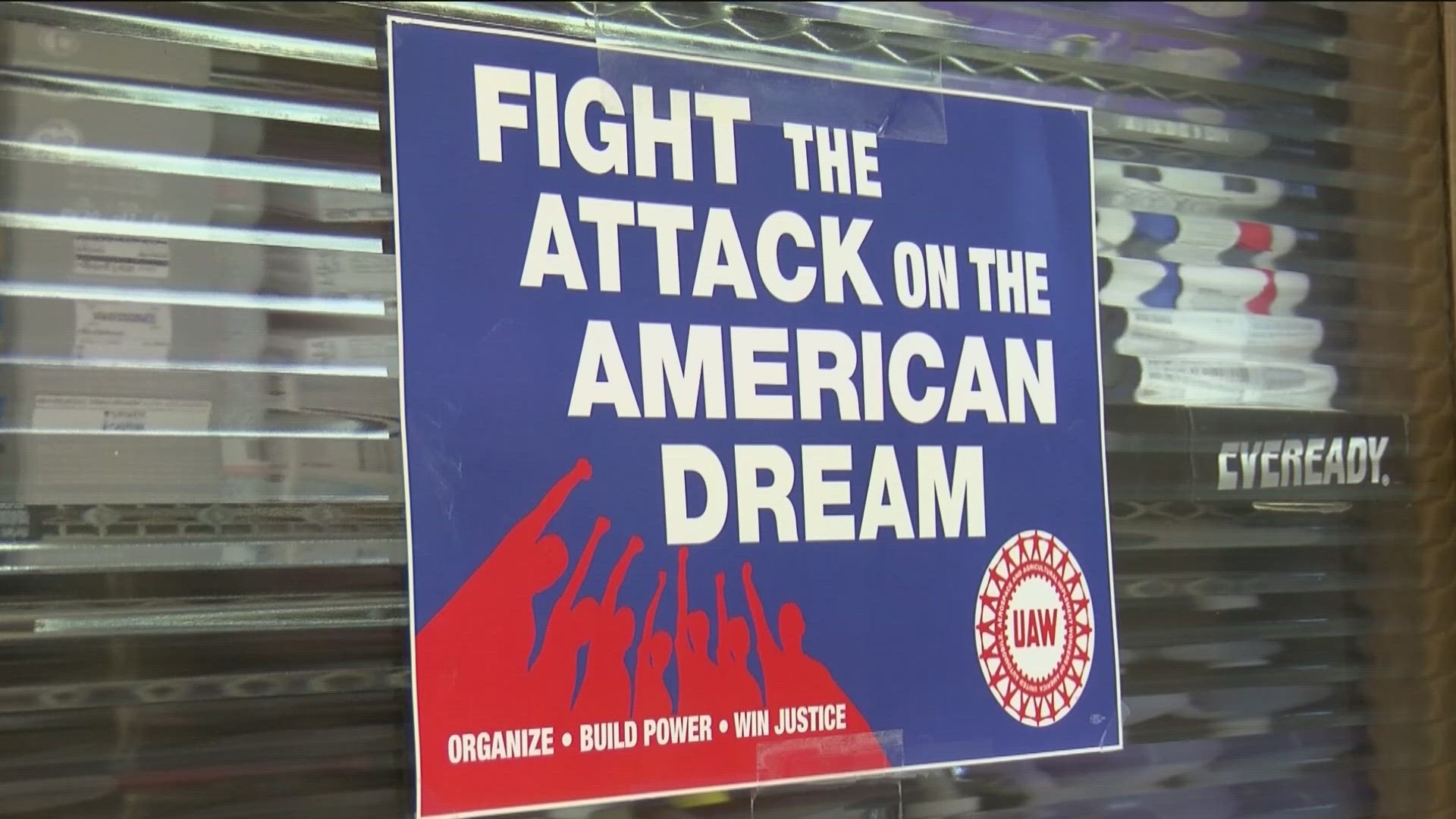TOLEDO, Ohio — Local United Auto Workers union members on Tuesday authorized the use of a strike as a bargaining tool if contract negotiations with the Big Three automakers stall next month.
UAW Local 12 leadership said 98.5% of its membership voted in favor of the strike authorization. Local 14 leadership said 94% of its membership voted in favor.
This does not mean UAW as a national body is going on strike. If most of the overall national membership votes in favor of the strike authorization, that would allow union leaders to call a strike at the negotiating table assuming no contract deal is reached.
"It's nice to know that membership supports us at the bargaining table and gives us the right to call a strike if we need to," Local 12 President Bruce Baumhower said.
National results will be known Thursday to determine whether membership supports a nationwide strike if the union feels the automakers -- General Motors, Stellantis and Ford Motor Company -- aren't willing to listen to their demands.
"Corporations now, this day and age, across the board, have a tendency to forget the working individuals," said Kenyetta Jones, a benefits representative for UAW Local 14.
The contracts, set to expire at 11:59 p.m. on Sept. 14, are cause for concern. Union members present at voting locations Tuesday said the automakers need to meet the current needs of workers in ways that haven't happened in over a decade.
When the automakers were facing bankruptcy in 2009, the unions agreed to cut wages and benefits to save the companies. But the companies have bounced back, and Baumhower said the sacrifices workers made have not been rectified.
"They're making record profits and haven't restored our benefits or our pay to the level it was before," Baumhower said.
Starting pay has remained the same for 14 years and pensions haven't seen an increase since 2003.
Avoiding a strike is ideal, according to local UAW leadership. But Baumhower said the companies "are not bargaining in good faith" and may force the union's hand if contract demands are not met.
Baumhower said that while local members authorized the strike, that doesn't mean it will happen for certain.
"Doesn't mean we'll go on strike, it just gives us the right to," he said. "Without their permission, we can't call a strike. So without their permission, we can bargain all we want to, but we won't have leverage without a strike."
If UAW as a national body authorizes and then employs a strike, it could mean massive financial wounds to the automotive industry.
President Joe Biden last week urged both sides of the bargaining table to reach a fair deal to avoid plant closings as the sector continues it move toward electric vehicles.
Analysis by Michigan-based consultancy Anderson Economic Group says even a 10-day strike could result in $5 billion in losses across the automotive industry, hitting everything including dealerships.
As the chip shortage continues to hamper inventory, it could put dealerships in a tough position.
Joe Mehling, the executive manager of Dave White Chevrolet, told WTOL 11 that automotive dealerships want to see UAW employees treated fairly. But a strike would make a difficulty inventory situation even harder.

